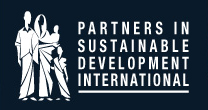A DAY IN THE LIFE OF A POOR WOMAN IN RURAL BANGLADESH
A woman living in a poor family in rural Bangladesh starts her day around 5:00 a.m. She cleans the house and yard, picking up any leaves and brush to use for fuel in cooking, feeds the livestock (if they are fortunate enough to have any), then begins preparing food for her family. Meals are simple, usually rice and maybe a few vegetables, cooked on an earthen stove. Women in Bangladesh are the primary cooks and they can spend 6-8 hours a day gathering and preparing food, cleaning and washing dishes, gathering fuels and cooking.
Bangladeshi’s are very community minded. If a family doesn’t have any food to prepare, others usually will share what they have. It’s beautiful.
The husband (if she’s fortunate to have one) eats first, before going to work in the fields or elsewhere and she packs a box with some food for him to eat later in the day. If she has small children, she helps them clean their teeth and wash their face when they wake up. The children are then fed and she helps her school age children get dressed and ready for school. Most government schools don’t provide food for their students, so the mother sends food with them to eat later. (Note: PSDI’s child development centers provide food for our students!)
With the children off to school, the mother then is free to go to work around 8 or 8:30 – usually doing household work in others homes (if she is fortunate enough). Children not yet in school go with her.
She’s back to her hut around noon to feed the livestock again. This is usually the best time for her to take a bath, which entails either a walk down to the nearest pond or using water from the well and a piece of cloth, washing in her hut.
The children arrive home from school around 2:00 and she prepares another simple meal for them. After this meal, the children are washed and the mother goes back to work for a few more hours.
Once home again around 5:30, she feeds the livestock again, gathers the children and begins preparing dinner. She makes sure her children complete their studies. Dinner is served around 8:00 and the family goes to sleep by 9:00.
One day is not very different from the next.
The culture in Bangladesh has been changing with regard to women. They are becoming empowered! With the help of nonprofits like PSDI offering microloans and other services, women are being given more opportunities to earn an income for her family. And when they earn money, they gain not only self-respect but also respect from their husband and others in the village. It has also been found that when women earn money, they invest it right back into their family, more so than men.
PSDI has launched an Empowering Women campaign with a goal of $9,000 to empower 300 more women in rural Bangladesh. Check it out here – and then decide to give a woman the opportunity she deserves to help her family not only survive but thrive. Thanks!
